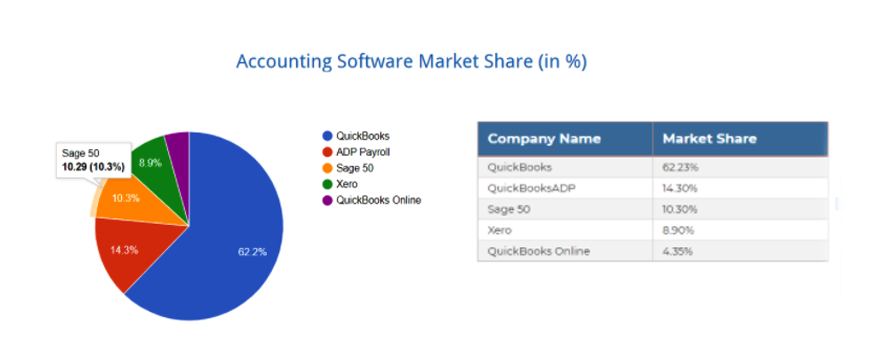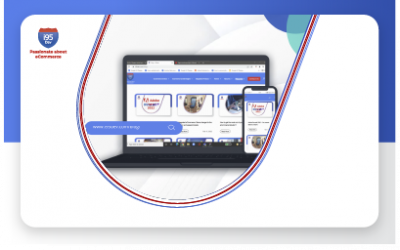How to Select Shopify and QuickBooks
Integration Services – A Mini Guide

Starting an eCommerce store is pretty easy, but running it profitably and scaling it are completely different things. One of the core business functions for any organization, including online retailers, is accounting and compliance. Bookkeeping is essential for maintaining proper taxation as well as understanding the financial health of your business. Today, we will discuss the integration of Shopify and QuickBooks, two of the leading solutions available in the market for eCommerce businesses. Dive in deeper to explore this mini-guide on selecting the right Shopify-QuickBooks integration services:
A Quick Introduction of Shopify and Intuit QuickBooks
This section will have an overview of Shopify and QuickBooks to understand the need for integration and how you should approach it to solve Shopify store problems.
QuickBooks
Intuit QuickBooks is the accounting software leader with a market share of 80%, and it is based on the Software-as-a-Service (SaaS) platform. It helps businesses track their cash flow, expenses, taxes, and it is easy to use the tool.
Benefits of Intuit QuickBooks include:
- Easy to learn
- Creates numerous reports
- Mobile-friendly
- Easy to record and update the database
- Useful for creating invoices and for payroll
- Useful for keeping track of inventory, expenses, sales, and payments.
Shopify
Shopify is among the best eCommerce website builders, and it is among the most flexible and reliable solutions in the market. All business sizes and industries prefer it, and it has a market share of 31% in the US. Scalability is among the top benefits of this platform.
Distribution for website using eCommerce technologies
Why eCommerce Stores Need Accounting Software Integrations
Shopify and QuickBooks are two of the most popular solutions of their respective categories. Shopify-ERP integrations help solve many issues, with accounting being a top concern for businesses. In this section, we will look at the reasons for integrating your eCommerce store with accounting software.
For online stores, their inventory and sales form the basis of bookkeeping. Tracking them helps you understand how your money flows and how well you utilize your resources. Shopify has excellent in-built features, but a dedicated solution is required to handle finance and accounting. QuickBooks is an ideal solution as it helps with bookkeeping, database maintenance, and managing your payment cycles.
Handing the data of multiple vendors, inventory, orders, applicable taxes, payments, and financial reports manually isn’t feasible even for entry-level businesses. Hence, integrating accounting software like Intuit QuickBooks is necessary to make proper decisions for your organization. This impacts your entire business strategy ranging from sales forecasting to accepting orders from various regions with complete compliance.
How to Select the Right eCommerce Integration Solution for Your Web Store
In this section, we will look at points to keep in mind while selecting the right cloud-based integration solution. If you are looking for one, you can reach out to i95Dev. To help you out with the selection process,
#1 One of the primary factors you should look for in a solution provider is system stability, encryption, and security. If the connector faces stability issues or the solution provider has access to the data, it can compromise your business interests. Hence, it would be best to go for a stable and secure solution for your web store.
#2 Real-time, bidirectional data transfer is a primary factor as it allows seamless synchronization of data like reconciliation reports, inventory levels, order status, and payments.
#3 Your Shopify-QuickBooks integration should be compatible with third-party applications like logistics services, payment gateways, and email marketing tools to support end-to-end accounting capabilities.
#4 Maintenance of your platform and service availability also plays an important role in selecting enterprise solutions. Thus, give adequate importance to this aspect as well.
#5 We recommend checking if the Shopify integration solution provider is a culture fit for your organization. They are long-term partners for your enterprise, and hence, evaluate them on this basis too.
#6 Turnaround time for custom cloud-based eCommerce integration solutions can vary from case to case. Make sure to include the total time required for implementation in your overall considerations.
#7 Track record and experience
You may also consider the solution provider’s domain experience and track record of delivering products before making the final decision.
Advantages of Integrating QuickBooks with your Shopify Store
Coming towards the end, we will discuss the advantages of integrating QuickBooks with your Shopify store:
Your accounts stay updated, and you get high accuracy.
A comprehensive database of your procurement, inventory management, sales, and taxation is developed and maintained.
You get access to financial reports that help make better decisions for both financial and non-financial issues.
Saves endless hours spent on manual data entry for reconciliation and other accounting functions.
With automation, your compliance and accounting costs will stay under control.
You get a clear idea of your operations, and you take steps to improve your Shopify store’s ROI.
Wrap Up
Automating core business processes like accounting should be the top priority for all Shopify stores. Intuit QuickBooks is the most popular and easy-to-use solution available in the market. A majority of businesses trust this combination, and you can contact i95Dev to get the best Shopify Connector for QuickBooks and other applications. We have strong technical and managerial expertise, and our team will provide you with a customized solution to suit your company the best. We hope that you find this mini-guide insightful for your eCommerce website.
Recent Blogs
Enhancing Shipping Precision with Custom Shipping Groups in Adobe Commerce/ Magento
Enhancing Shipping Precision with Custom Shipping Groups in Adobe Commerce/ Magento Author Category Share Three things matter the most when it comes to eCommerce shipping: speed, accuracy,...
Managing Massive Product Catalogs: Why Synchronization is the Key to Efficiency
Managing Massive Product Catalogs: Why Synchronization is the Key to Efficiency Author Category Share The automotive aftermarket industry is vast and highly competitive, requiring businesses...
A Complete Guide to Seamlessly Integrating Adobe Commerce with NetSuite
A Complete Guide to Seamlessly Integrating Adobe Commerce with NetSuite Author Category Share Integrating Adobe Commerce (formerly Magento) with NetSuite ERP can transform the way businesses...






